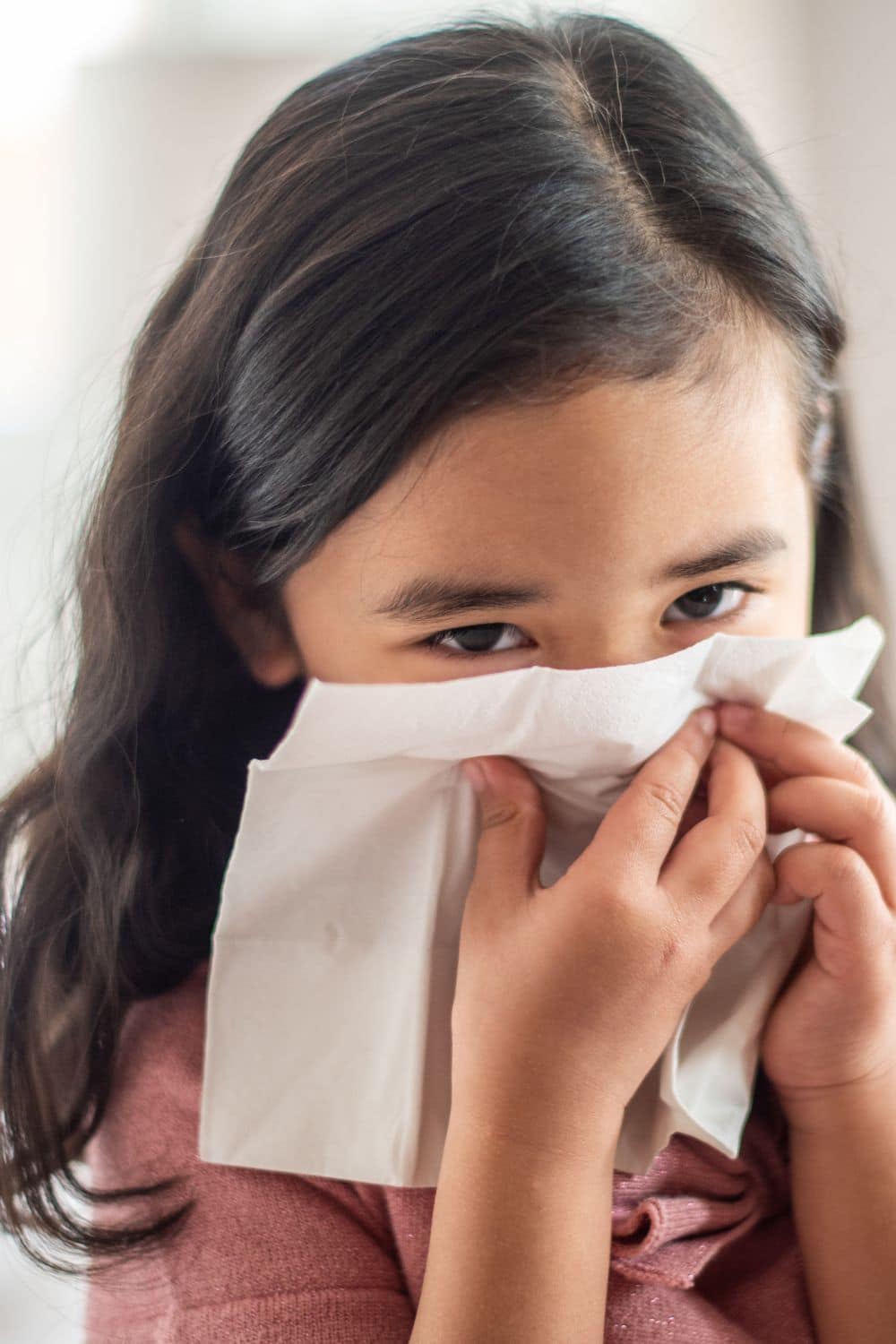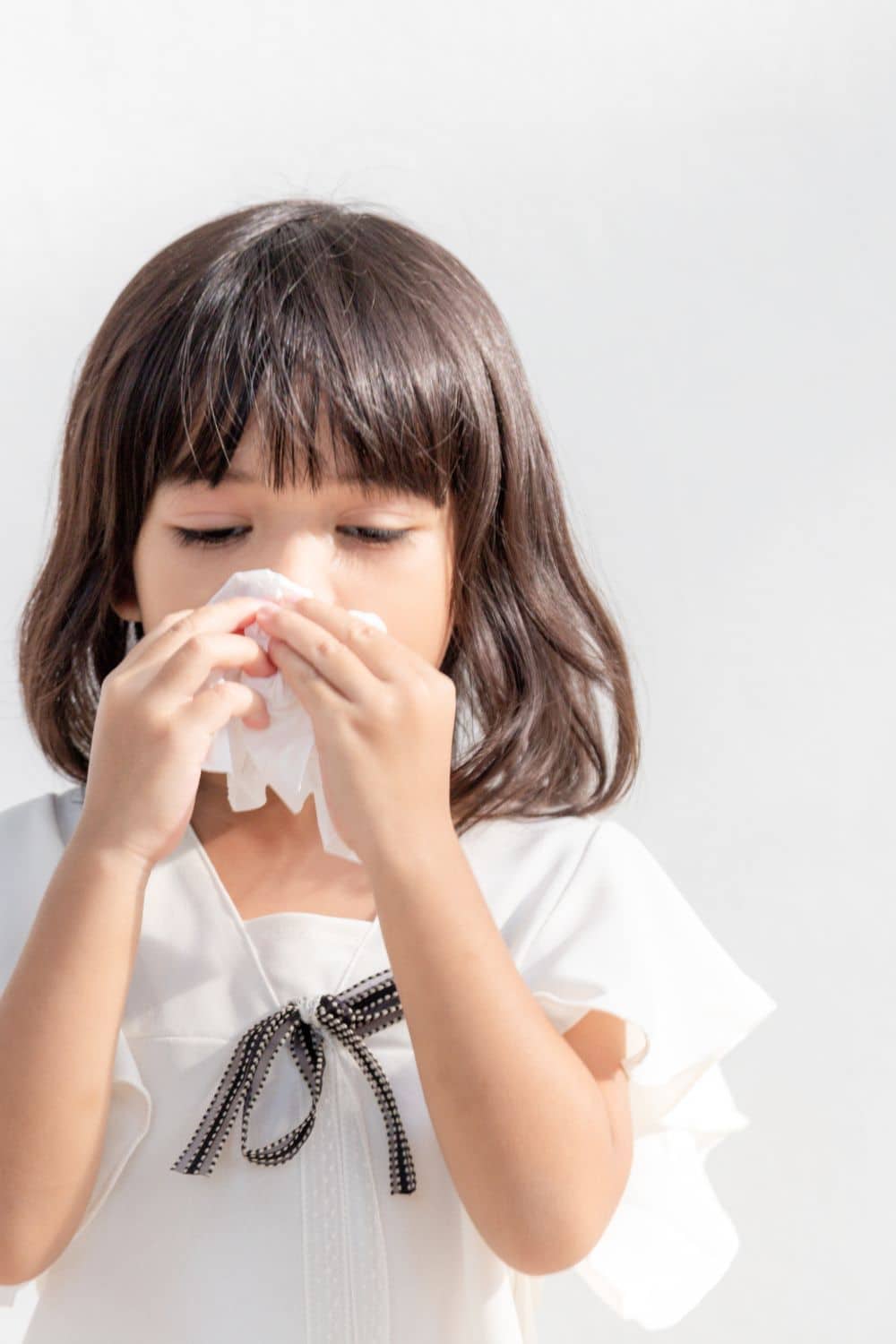Do your kids suffer from Seasonal Allergies? Here is info on What parents should know about seasonal allergies In Children.
Seasonal Allergies In Children: What Parents Should Know
You know it’s that time of year again when your child starts sneezing, rubbing their itchy eyes, and complaining about a stuffy nose. These symptoms, familiar yet often misunderstood, signal seasonal allergies in children.
Understanding these allergies is crucial as a parent, as they impact your child’s daily comfort and overall well-being. Seasonal allergies, while predictable, can be perplexing. Unlike fleeting colds, allergies tend to linger, fluctuating with pollen counts and other environmental factors.
Recognizing the signs, understanding the triggers, and managing the symptoms can empower you to help your child navigate these challenges with more ease and comfort. This article guides you through managing and mitigating the impact of seasonal allergies on your child’s life.
Recognizing The Symptoms
Recognizing the symptoms is the first step in addressing seasonal allergies. Unlike the common cold, allergies in children typically manifest as a runny nose, itchy eyes, sneezing, coughing, and sometimes an itchy throat. These symptoms can disrupt sleep, affecting your child’s energy and mood.
Differentiating these signs from other childhood illnesses is crucial for timely and effective management. With this knowledge, you can take steps to improve your child’s environment.
Using the best air purifier for allergies is one effective measure. These devices can significantly reduce allergens in your child’s living space, alleviating symptoms and promoting better sleep and comfort, particularly during high pollen seasons.
Understanding Allergen Triggers
Identifying what triggers your child’s allergic reactions is critical to managing their symptoms. Common triggers include pollen from trees, grasses, weeds, mold spores, dust mites, and pet dander.
Monitoring local pollen counts can help you anticipate and mitigate worsening symptoms, such as by keeping windows closed on high pollen days. Being aware of indoor triggers is equally essential.
Regular cleaning to minimize dust mites, mold, and pet dander is beneficial. Encasing your child’s mattress and pillows in allergen-proof covers and washing bedding in hot water weekly can further reduce exposure to these triggers.
The Role Of Immunotherapy
Immunotherapy, such as allergy shots or tablets, can be a long-term solution for some children. This treatment involves gradually increasing exposure to allergens, helping your child’s immune system become less sensitive over time.
Although it’s a commitment, often spanning several years, it can greatly reduce or even eliminate allergy symptoms. Consulting an allergist can provide insights into whether immunotherapy is suitable for your child, taking into account their age, overall health, the severity of allergies, and ability to follow the treatment plan.
Over-The-Counter Solutions
Several over-the-counter (OTC) medications are effective for managing allergy symptoms. Antihistamines can relieve sneezing, itching, and runny nose, while nasal sprays may address congestion. Consulting your pediatrician before starting any medication is crucial, as they can recommend the safest and most appropriate options for your child’s age and specific symptoms.
Using these medications aims to suppress symptoms and enhance your child’s quality of life during allergy season. Proper use can significantly improve your child’s comfort during this time.
Dietary Considerations
Diet plays a significant role in managing seasonal allergies. Certain foods can exacerbate symptoms, while others may help alleviate them. Foods high in omega-3 fatty acids, like salmon and flaxseeds, possess anti-inflammatory qualities that can help in diminishing allergic responses.
Conversely, foods that trigger histamine release, like aged cheeses and processed meats, might worsen symptoms. A balanced diet, rich in fruits, vegetables, and healthy fats, can support your child’s immune system. Keeping a food diary can help determine if specific foods worsen your child’s allergy symptoms.
The Importance Of Hydration And Rest
Hydration and rest are crucial in combating the effects of seasonal allergies. Adequate hydration thins mucus, facilitating easier breathing. Encourage your child to drink plenty of fluids, especially water, throughout the day.
Rest is equally essential. Allergies can disrupt sleep due to symptoms like coughing and nasal congestion. Ensuring your child gets enough sleep is vital for their body to recover from allergen exposure. A comfortable, allergen-free sleeping environment can significantly improve sleep quality.
Educating And Empowering Your Child
Empowering your child with knowledge about their allergies is important. Teach them to recognize their symptoms and understand their triggers. Encourage older children to monitor pollen counts and manage their allergies proactively, including carrying their medication.
Building a support system at school is also crucial. Inform teachers and school staff about your child’s allergies and the steps to take in case of an allergic reaction. This ensures your child’s needs are met, even when away from home.
Conclusion
Managing seasonal allergies in children involves more than just treating symptoms. It encompasses understanding triggers, making environmental and dietary adjustments, and using medication appropriately. Each child’s experience with allergies is unique, and what works for one may not work for another.
As a parent, you must remain informed, vigilant, and supportive as you create an environment where your child can thrive despite their allergies. Adopting these strategies can help your child navigate allergy season with more confidence and less discomfort.


Leave A Reply!